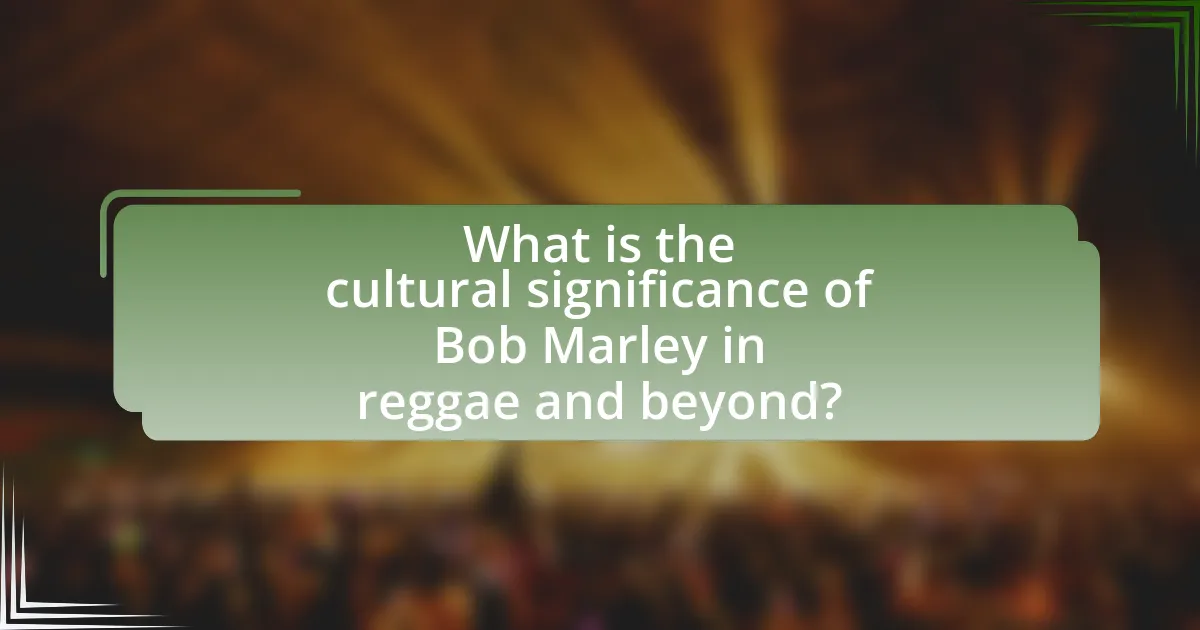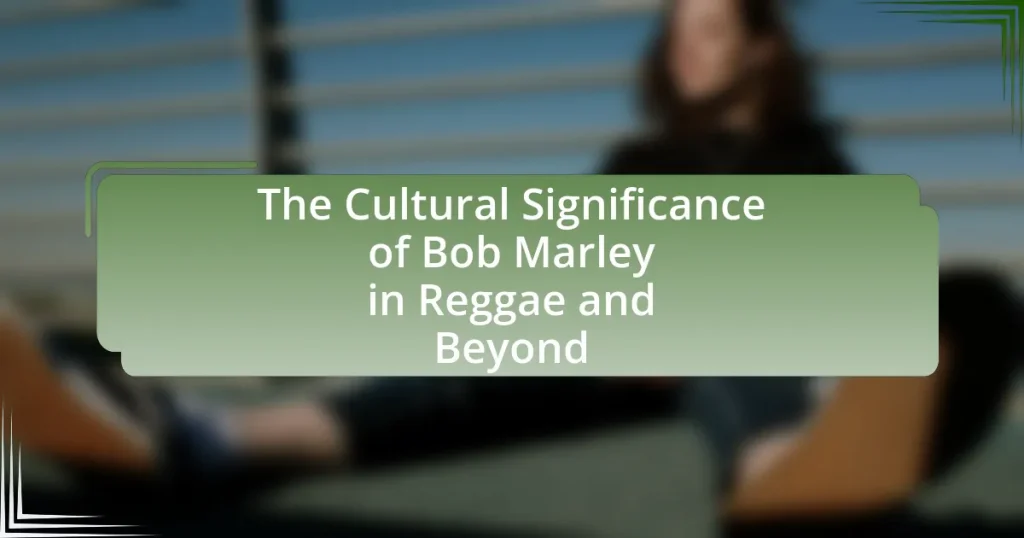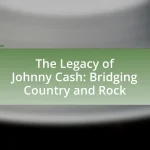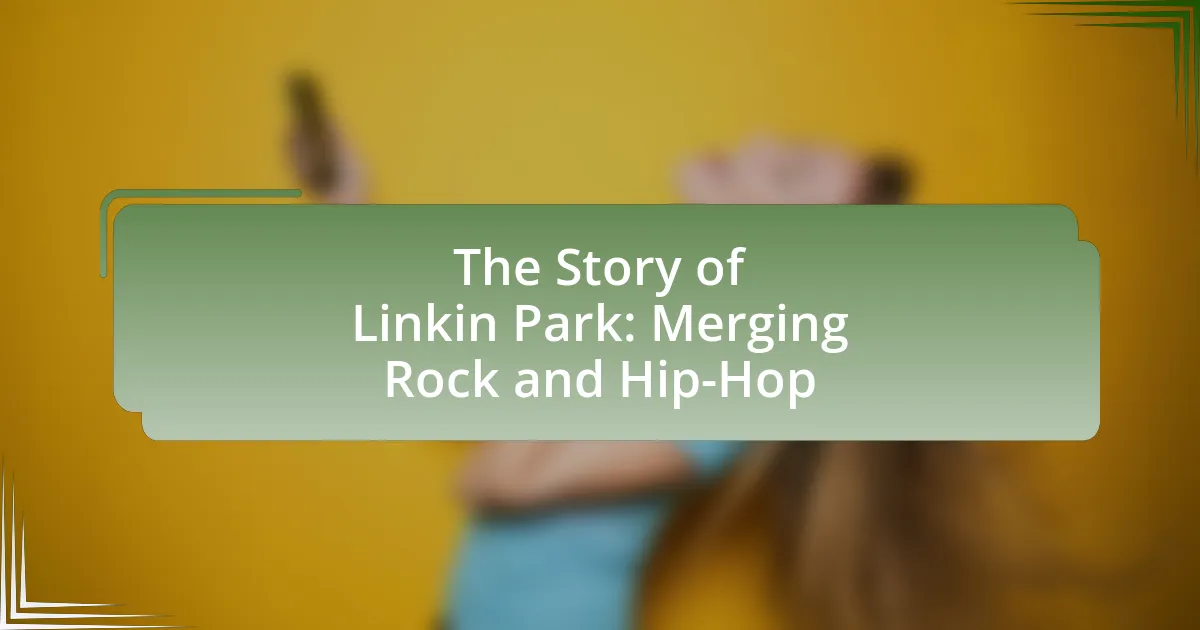Bob Marley is a pivotal figure in reggae music and a significant cultural icon whose influence extends beyond music into global social movements. His songs, characterized by themes of love, unity, and social justice, have popularized reggae worldwide and addressed pressing social issues, making him a voice for the marginalized. Marley’s incorporation of Rastafarian beliefs into his lyrics has raised awareness of the religion and its cultural roots, while his image symbolizes resistance and activism. The article explores Marley’s impact on the reggae genre, his role in shaping cultural narratives, and the ongoing relevance of his messages in contemporary society.

What is the cultural significance of Bob Marley in reggae and beyond?
Bob Marley is a pivotal figure in reggae music and has significantly influenced global culture. His music popularized reggae worldwide, with hits like “No Woman, No Cry” and “One Love” addressing themes of love, unity, and social justice. Marley’s incorporation of Rastafarian beliefs into his lyrics brought awareness to the religion and its cultural roots, promoting messages of resistance against oppression. His album “Exodus” was named Album of the Century by Time magazine in 1999, underscoring his lasting impact. Additionally, Marley’s legacy extends beyond music; he became a symbol of peace and activism, inspiring movements for social change and cultural pride across various communities.
How did Bob Marley influence the reggae genre?
Bob Marley significantly influenced the reggae genre by popularizing its sound and themes globally. His music, characterized by a blend of rock, soul, and reggae, introduced the genre to a wider audience, particularly through hits like “No Woman, No Cry” and “One Love.” Marley’s incorporation of Rastafarian themes and social commentary in his lyrics brought depth to reggae, addressing issues such as poverty, oppression, and unity. His album “Exodus,” released in 1977, is often cited as a pivotal moment in reggae history, showcasing the genre’s potential for mainstream success. Marley’s impact is evident in the way he inspired countless artists and shaped the identity of reggae music, making it a significant cultural force worldwide.
What are the key elements of Marley’s music that shaped reggae?
The key elements of Marley’s music that shaped reggae include socially conscious lyrics, a distinctive rhythm, and the incorporation of Rastafarian themes. Marley’s lyrics often addressed social issues such as poverty, inequality, and resistance, exemplified in songs like “Get Up, Stand Up” and “Redemption Song.” The rhythm of his music, characterized by the offbeat guitar strumming and syncopated bass lines, became a defining feature of reggae. Additionally, Marley’s integration of Rastafarian beliefs and imagery, as seen in tracks like “One Love,” helped popularize the spiritual and cultural aspects of reggae music globally. These elements collectively contributed to the genre’s identity and its impact on music and culture worldwide.
How did Marley’s lyrics reflect social and political issues?
Bob Marley’s lyrics prominently reflected social and political issues by addressing themes of oppression, resistance, and unity. His song “Get Up, Stand Up” serves as a rallying cry for social justice, urging listeners to fight against inequality and injustice. Additionally, “Redemption Song” emphasizes the importance of mental liberation and freedom from colonial oppression, showcasing Marley’s commitment to advocating for the marginalized. His music often highlighted the struggles faced by the Rastafarian community and broader societal issues, making him a voice for change during a time of political unrest in Jamaica and beyond.
Why is Bob Marley considered a global icon?
Bob Marley is considered a global icon due to his profound impact on music, culture, and social movements worldwide. His pioneering role in popularizing reggae music, particularly through hits like “No Woman, No Cry” and “One Love,” helped to elevate the genre beyond Jamaica, influencing artists across various musical styles. Additionally, Marley’s lyrics often addressed themes of peace, love, and social justice, resonating with audiences globally and contributing to his status as a symbol of resistance and unity. His posthumous recognition includes the Grammy Lifetime Achievement Award and induction into the Rock and Roll Hall of Fame, solidifying his legacy as a transformative figure in music and culture.
What role did Marley’s image play in his cultural impact?
Marley’s image played a crucial role in his cultural impact by symbolizing resistance, unity, and the Rastafarian movement. His distinct appearance, characterized by dreadlocks and vibrant clothing, became iconic, representing not only his music but also the struggles and aspirations of marginalized communities. This visual identity helped to globalize reggae music and Rastafarian culture, making them accessible and relatable to a wider audience. For instance, Marley’s performance at the One Love Peace Concert in 1978 showcased his image as a unifying figure during a time of political turmoil in Jamaica, reinforcing his status as a cultural ambassador. His image continues to resonate, influencing artists and movements worldwide, demonstrating the lasting power of visual representation in cultural narratives.
How did Marley’s music transcend cultural boundaries?
Bob Marley’s music transcended cultural boundaries by blending reggae with universal themes of love, resistance, and social justice, appealing to diverse audiences worldwide. His songs, such as “One Love” and “Get Up, Stand Up,” resonate with listeners from various backgrounds, promoting messages of unity and empowerment. Marley’s global reach is evidenced by his ability to sell over 75 million records internationally and to perform in numerous countries, making reggae a prominent genre across different cultures. His influence is further solidified by his induction into the Rock and Roll Hall of Fame in 1994, showcasing his lasting impact on music and culture beyond Jamaica.
What legacy did Bob Marley leave behind?
Bob Marley left behind a profound legacy as a pioneer of reggae music and a global symbol of peace, love, and social justice. His music, characterized by its spiritual and political themes, popularized reggae worldwide, influencing countless artists across various genres. Marley’s songs, such as “One Love” and “Redemption Song,” continue to resonate, promoting messages of unity and resistance against oppression. His commitment to Rastafarian culture and advocacy for social change solidified his status as an icon, inspiring movements for equality and human rights. Marley’s impact is evident in the continued relevance of his music and the ongoing celebration of his contributions to culture and society.
How have subsequent artists drawn inspiration from Marley?
Subsequent artists have drawn inspiration from Bob Marley primarily through his themes of social justice, unity, and spirituality in music. Many contemporary reggae and pop artists incorporate Marley’s messages of resistance against oppression and the importance of love and community in their lyrics. For instance, artists like Damian Marley and Protoje have explicitly referenced Marley’s influence in their work, blending traditional reggae with modern sounds while maintaining the core values Marley championed. Additionally, Marley’s distinctive musical style, characterized by its rhythmic complexity and melodic hooks, continues to shape the sound of new generations of musicians, evident in the works of artists across various genres who sample or cover his songs, thereby keeping his legacy alive.
What are the ongoing cultural movements associated with Marley’s work?
Ongoing cultural movements associated with Bob Marley’s work include the Rastafarian movement, social justice activism, and global reggae culture. The Rastafarian movement, which Marley significantly influenced, promotes themes of African identity, spiritual awareness, and resistance against oppression. Social justice activism is evident in Marley’s lyrics that address issues like poverty, inequality, and human rights, inspiring contemporary movements advocating for social change. Additionally, global reggae culture continues to thrive, with Marley’s music serving as a foundation for various genres and cultural expressions worldwide, promoting messages of peace, love, and unity.
How did Bob Marley’s life experiences shape his music?
Bob Marley’s life experiences profoundly shaped his music by infusing it with themes of struggle, resilience, and social justice. Growing up in the impoverished neighborhood of Trench Town in Jamaica, Marley faced economic hardship and social inequality, which influenced his lyrics and musical style. His exposure to Rastafarian beliefs, emphasizing unity and resistance against oppression, further enriched his work, leading to songs like “Get Up, Stand Up” that advocate for human rights. Additionally, Marley’s experiences with love and loss, particularly in his relationships, added emotional depth to his music, evident in tracks such as “No Woman, No Cry.” These elements combined to create a powerful narrative that resonated with audiences worldwide, establishing Marley as a cultural icon in reggae music.
What were the key events in Marley’s life that influenced his artistry?
Key events in Bob Marley’s life that influenced his artistry include his upbringing in Jamaica, exposure to Rastafarian beliefs, and his experiences with social and political issues. Growing up in the impoverished neighborhood of Trench Town, Marley faced economic hardships that shaped his worldview and lyrical themes. His conversion to Rastafarianism in the 1960s introduced him to a spiritual and cultural identity that deeply influenced his music, promoting messages of unity, resistance, and social justice. Additionally, Marley’s involvement in the political landscape of Jamaica, particularly during the 1970s, led him to address issues such as inequality and violence in his songs, exemplified by tracks like “Get Up, Stand Up” and “Redemption Song.” These events collectively contributed to his legacy as a voice for the marginalized and a global ambassador for reggae music.
How did Marley’s upbringing in Jamaica affect his musical style?
Bob Marley’s upbringing in Jamaica significantly influenced his musical style by embedding elements of Rastafarian culture, social issues, and local musical traditions into his work. Growing up in a rural Jamaican environment, Marley was exposed to the sounds of ska, rocksteady, and reggae, which shaped his rhythmic and melodic sensibilities. Additionally, the socio-political landscape of Jamaica, marked by poverty and inequality, inspired his lyrics that often addressed themes of resistance, love, and unity. The Rastafarian movement, which he embraced, further infused his music with spiritual and cultural depth, promoting messages of peace and social justice. This combination of cultural influences and personal experiences is evident in iconic songs like “One Love” and “Redemption Song,” which reflect both his Jamaican roots and universal themes.
What personal struggles did Marley face that informed his lyrics?
Bob Marley faced significant personal struggles, including poverty, racial discrimination, and health issues, which deeply informed his lyrics. Growing up in the impoverished neighborhood of Nine Mile, Jamaica, Marley experienced economic hardship that influenced his themes of struggle and resilience in songs like “Get Up, Stand Up.” Additionally, Marley faced racial discrimination as a Black man in Jamaica, which shaped his advocacy for social justice and equality, evident in tracks such as “Redemption Song.” His battle with cancer later in life also added a layer of urgency and introspection to his music, particularly in songs like “Three Little Birds,” where he conveyed messages of hope and perseverance despite adversity.
How did Marley’s relationships impact his music and message?
Marley’s relationships significantly shaped his music and message by infusing his work with themes of love, unity, and social justice. His collaborations with fellow musicians, such as Peter Tosh and Bunny Wailer, fostered a sense of community and collective expression within reggae, amplifying messages of resistance against oppression. Additionally, his romantic relationships, particularly with Rita Marley, influenced his songwriting, as seen in tracks like “Is This Love,” which reflect personal and emotional depth. These connections not only enriched his lyrical content but also helped to establish reggae as a powerful vehicle for cultural and political commentary, resonating with audiences worldwide.
What role did his band, The Wailers, play in his success?
The Wailers were instrumental in Bob Marley’s success by providing a unique sound that blended reggae with rock and soul elements. This collaboration allowed Marley to reach a broader audience, as their music featured rich harmonies and innovative instrumentation. The Wailers’ contributions included iconic albums such as “Catch a Fire” and “Rastaman Vibration,” which showcased their collective talent and solidified Marley’s status as a global music icon. Their partnership not only enhanced Marley’s artistic vision but also played a crucial role in popularizing reggae music worldwide, making it a significant cultural force.
How did Marley’s collaborations with other artists enhance his work?
Marley’s collaborations with other artists significantly enhanced his work by introducing diverse musical influences and expanding his audience reach. For instance, his partnership with musicians like Peter Tosh and Bunny Wailer in The Wailers created a rich harmonic and lyrical depth that defined reggae music. Additionally, collaborations with international artists, such as Eric Clapton, who covered “I Shot the Sheriff,” helped to popularize Marley’s music beyond Jamaica, leading to increased global recognition and sales. These collaborations not only enriched the musical texture of his songs but also facilitated cultural exchanges that solidified his status as a pivotal figure in reggae and world music.
What are the broader implications of Bob Marley’s music on society?
Bob Marley’s music has significantly influenced societal movements, particularly in promoting messages of peace, unity, and social justice. His songs, such as “One Love” and “Get Up, Stand Up,” have become anthems for various civil rights and anti-colonial movements, resonating with marginalized communities worldwide. Marley’s incorporation of Rastafarian themes into his music has also played a crucial role in raising awareness about issues like poverty, inequality, and the struggles of the African diaspora. His global reach, evidenced by over 75 million records sold, demonstrates the lasting impact of his messages, which continue to inspire activism and cultural pride across generations.
How has Marley’s music contributed to social change?
Marley’s music has significantly contributed to social change by promoting messages of peace, unity, and resistance against oppression. His songs, such as “Get Up, Stand Up” and “One Love,” advocate for social justice and human rights, resonating with marginalized communities worldwide. The impact of his music is evidenced by its role in the anti-apartheid movement in South Africa, where his song “Redemption Song” became an anthem for freedom and empowerment. Additionally, Marley’s emphasis on Rastafarian ideals in his lyrics has helped raise awareness about issues like poverty and inequality, influencing social movements and inspiring generations to fight for change.
What movements have been inspired by Marley’s messages of peace and unity?
Bob Marley’s messages of peace and unity have inspired various movements, notably the Rastafarian movement, anti-apartheid activism, and global peace initiatives. The Rastafarian movement, which emerged in Jamaica during the 1930s, emphasizes unity among people of African descent and promotes social justice, heavily influenced by Marley’s lyrics advocating for love and equality. Additionally, Marley’s music became anthems for anti-apartheid activists in South Africa, where songs like “Get Up, Stand Up” galvanized efforts against racial oppression. Furthermore, his messages have been integral to global peace initiatives, such as the One Love Peace Concert in 1978, which aimed to unite warring factions in Jamaica. These movements reflect the enduring impact of Marley’s advocacy for harmony and solidarity across diverse communities.
How do Marley’s songs address issues of inequality and injustice?
Marley’s songs address issues of inequality and injustice by highlighting the struggles of marginalized communities and advocating for social change. For instance, in “Get Up, Stand Up,” Marley calls for resistance against oppression, emphasizing the need for individuals to fight for their rights. Additionally, “Redemption Song” reflects on the legacy of slavery and the importance of mental liberation, urging listeners to free themselves from mental bondage. These themes resonate with historical contexts, such as the civil rights movement and the fight against colonialism, reinforcing Marley’s role as a voice for the oppressed and a catalyst for social awareness.
What is the significance of Bob Marley in contemporary culture?
Bob Marley is significant in contemporary culture as a global icon of peace, love, and social justice, influencing music, fashion, and activism. His music, particularly songs like “One Love” and “Redemption Song,” promotes messages of unity and resistance against oppression, resonating with movements for civil rights and social change worldwide. Marley’s legacy is evident in the continued popularity of reggae music, which has inspired countless artists across various genres, and his image remains a symbol of cultural identity and resilience, particularly within the Rastafarian community. His induction into the Rock and Roll Hall of Fame in 1994 and the ongoing celebration of his birthday as a day of global recognition further solidify his impact on contemporary culture.
How is Marley’s music used in modern social and political contexts?
Marley’s music is utilized in modern social and political contexts as a powerful tool for activism and social change. His songs, such as “Get Up, Stand Up” and “Redemption Song,” resonate with movements advocating for human rights, social justice, and anti-colonialism. For instance, during protests against systemic racism and police brutality, activists often play Marley’s music to inspire solidarity and resilience. Additionally, his lyrics are frequently cited in discussions about inequality and empowerment, reinforcing the message of resistance against oppression. The enduring relevance of Marley’s themes in contemporary struggles highlights his impact on global social movements, making his music a significant cultural artifact in the fight for justice.
What are the current trends in reggae that reflect Marley’s influence?
Current trends in reggae that reflect Bob Marley’s influence include the resurgence of conscious lyrics addressing social justice, unity, and spirituality, mirroring Marley’s themes. Artists like Protoje and Koffee incorporate these elements, emphasizing cultural identity and resistance against oppression, similar to Marley’s messages in songs like “Get Up, Stand Up.” Additionally, the fusion of reggae with genres like hip-hop and R&B showcases Marley’s impact on contemporary music, as seen in collaborations that maintain reggae’s roots while appealing to a broader audience. This blending of styles continues to promote Marley’s legacy, reinforcing the genre’s relevance in today’s cultural landscape.
What can we learn from Bob Marley’s approach to music and activism?
Bob Marley’s approach to music and activism teaches the importance of using art as a platform for social change. His songs often addressed themes of resistance, unity, and empowerment, exemplified by tracks like “Get Up, Stand Up,” which calls for action against oppression. Marley’s ability to blend reggae music with messages of political and social justice resonated globally, making him a symbol of hope and resilience. His participation in events like the One Love Peace Concert in 1978 demonstrated how music can bridge divides and promote peace, highlighting the potential of artists to influence societal issues.
How can artists today emulate Marley’s blend of music and message?
Artists today can emulate Bob Marley’s blend of music and message by integrating socially conscious themes into their lyrics while maintaining a captivating musical style. Marley’s work often addressed issues such as social justice, unity, and resistance against oppression, which resonated deeply with audiences. For instance, songs like “Get Up, Stand Up” and “One Love” exemplify how he combined powerful messages with infectious rhythms. By focusing on contemporary social issues, such as inequality or climate change, and pairing them with engaging melodies and rhythms, modern artists can create a similar impact. This approach not only honors Marley’s legacy but also ensures that their music remains relevant and meaningful in today’s cultural landscape.
What best practices can be derived from Marley’s legacy for future generations?
Bob Marley’s legacy offers several best practices for future generations, primarily emphasizing social justice, unity, and the power of music as a tool for change. His commitment to addressing issues such as poverty, inequality, and human rights through his lyrics and public persona serves as a model for activism. For instance, songs like “Get Up, Stand Up” advocate for standing against oppression, encouraging individuals to fight for their rights. Additionally, Marley’s emphasis on unity across diverse cultures, as seen in his collaborations and messages of love and peace, highlights the importance of inclusivity in social movements. His ability to use music to convey profound messages demonstrates how art can inspire and mobilize communities toward positive change.


